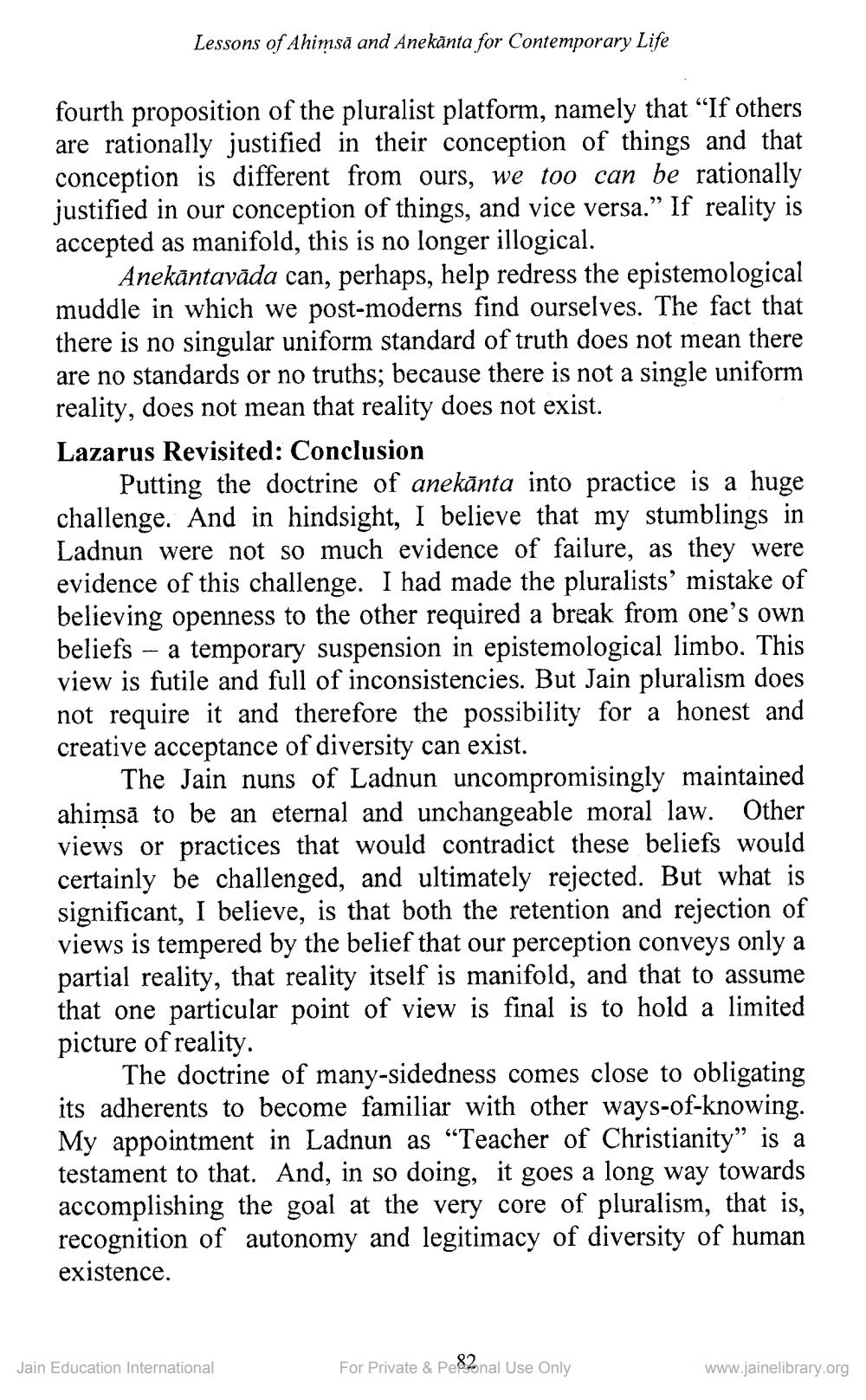________________
Lessons of Ahimsā and Anekānta for Contemporary Life
fourth proposition of the pluralist platform, namely that “If others are rationally justified in their conception of things and that conception is different from ours, we too can be rationally justified in our conception of things, and vice versa.” If reality is accepted as manifold, this is no longer illogical.
Anekāntavāda can, perhaps, help redress the epistemological muddle in which we post-moderns find ourselves. The fact that there is no singular uniform standard of truth does not mean there are no standards or no truths; because there is not a single uniform reality, does not mean that reality does not exist. Lazarus Revisited: Conclusion
Putting the doctrine of anekānta into practice is a huge challenge. And in hindsight, I believe that my stumblings in Ladnun were not so much evidence of failure, as they were evidence of this challenge. I had made the pluralists' mistake of believing openness to the other required a break from one's own beliefs - a temporary suspension in epistemological limbo. This view is futile and full of inconsistencies. But Jain pluralism does not require it and therefore the possibility for a honest and creative acceptance of diversity can exist.
The Jain nuns of Ladnun uncompromisingly maintained ahimsā to be an eternal and unchangeable moral law. Other views or practices that would contradict these beliefs would certainly be challenged, and ultimately rejected. But what is significant, I believe, is that both the retention and rejection of views is tempered by the belief that our perception conveys only a partial reality, that reality itself is manifold, and that to assume that one particular point of view is final is to hold a limited picture of reality.
The doctrine of many-sidedness comes close to obligating its adherents to become familiar with other ways-of-knowing. My appointment in Ladnun as “Teacher of Christianity” is a testament to that. And, in so doing, it goes a long way towards accomplishing the goal at the very core of pluralism, that is, recognition of autonomy and legitimacy of diversity of human existence.
Jain Education International
For Private & Penal Use Only
www.jainelibrary.org




